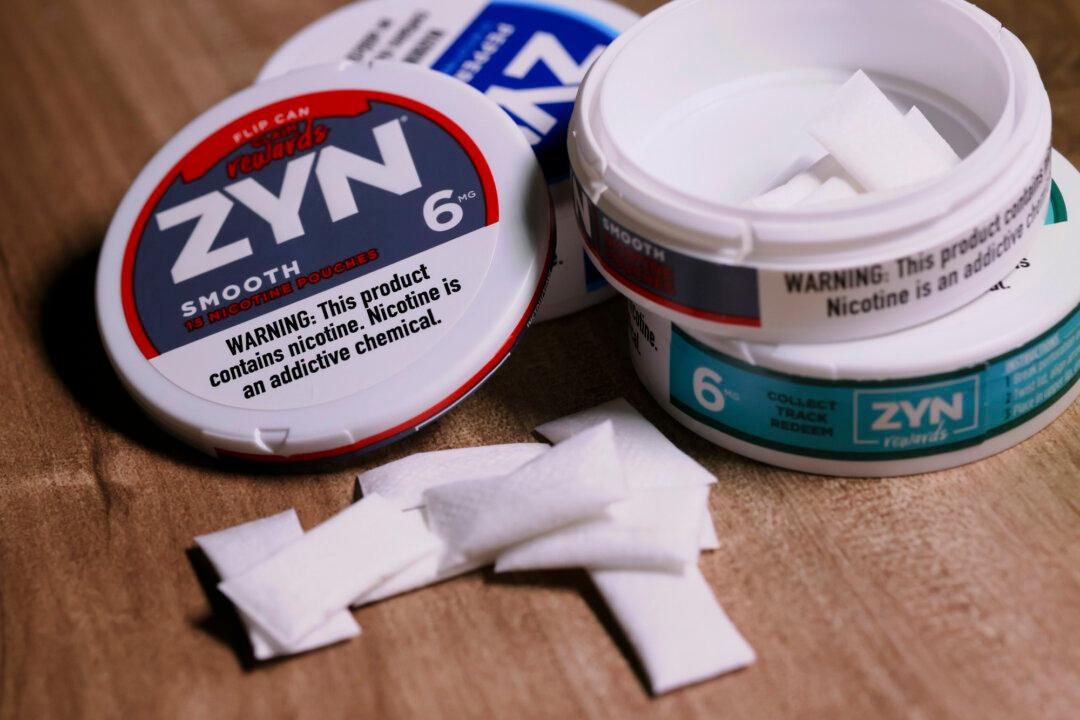Poison control centers across the United States have reported higher numbers of accidental nicotine poisoning incidents among children because of the accidental ingestion of nicotine pouches, a study found.
“Nicotine pouches accounted for only 1.4 percent of nicotine ingestions, but they were five times more likely to be associated with a serious medical outcome and twice as likely to be associated with a medical admission than other product formulations combined,” the researchers stated.
Nicotine pouches contain a powder made from nicotine, flavorings, and other ingredients. They are placed between the upper lip and gum, and the powder then dissolves in the mouth and is absorbed through the gums and mouth lining. The pouch is discarded after use.
The pouches are smoke-free, and unlike chewing tobacco, they do not contain tobacco leaf, dust, or stem. The nicotine used in the pouches may be derived from the tobacco plant or through synthetic means.
Although the study published on July 14 found that most pediatric nicotine ingestions resulted in little to no harm to the child, a number of children experienced serious medical outcomes.
Researchers found that 36.8 percent of nicotine ingestions “were associated with no effect,” while 19.6 percent saw a “minor effect.” Overall, 81.3 percent of cases did not receive treatment at a health care facility, the researchers said.
However, in 1.2 percent of nicotine ingestions, or 39 cases, there were “major effects,” according to the paper. Two children died, the study found.
Researchers involved in the study issued a warning that more awareness is needed regarding nicotine pouch poisoning.
Earlier this year, the FDA said it backed the public health benefits of nicotine pouches, authorizing Philip Morris International’s Zyn to help adult smokers cut back or quit cigarette usage.
In January, just before President Donald Trump took office, the FDA approved 10 Zyn flavors, including coffee, mint, and menthol. It was the first time that regulators had authorized sales of nicotine pouches.
FDA officials said Zyn contains fewer harmful ingredients than cigarettes and various types of chewing tobacco, including snuff, which are linked to cancer and other life-threatening diseases. Company data also showed “a substantial portion of adults” who previously smoked switched completely to Zyn, regulators said. The pouches are sold in two strengths.
However, the FDA approval drew criticism from anti-smoking groups at the time.







